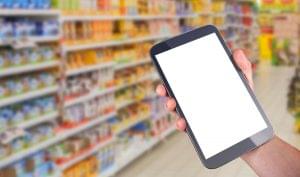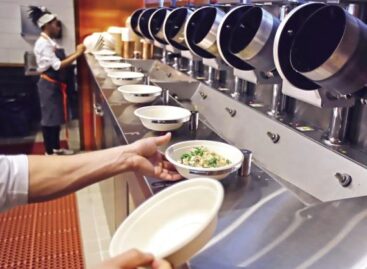Magazine: Waiting for a breakthrough

Sándor Nagy
president
Ecommerce
Hungary
In Hungary online FMCG sales are way below the international average. Online FMCG retail started in 1998-1999 in Hungary and shoppers could only choose from the product selection of a handful of stores. This was also the period when GRoby online was launched – and operated up until 2014 practically without any competition. Why didn’t other Hungarian FMCG retailers launch their online shops for so long? The reason was the lack of expertise and after 2005 the relatively high costs, e.g. developing the online platform, storage, logistics, marketing, etc.
At the moment there is no good online alternative to buying fresh products in physical stores. If a woman is going home from work and would like to cook something in the evening, currently she can’t order the ingredients from an online shop with 1-2 hour delivery. However, the weekly or monthly big shop can be done online, but this also takes time. According to a survey, composing a HUF 25,000-30,000, 30-40 item basket can take 30-40 minutes. What is more, the shopper also has to be at home in the selected time slot when the goods are delivered.
Certain services that could make online FMCG buying attractive are missing from the Hungarian market. What are these? 1.Delivery in 1-2 hours, 2.Online platform that offers a personalised shopping experience, optimised for smartphone if possible, 3.Large selection of goods, especially in the fresh product category, 4.Good price/value ratio of the service. As the face of retail is changing, the new golden rule is ‘Stop selling, start helping!’

In December kifli.hu was launched in Hungary. This market player is already successful in the Czech Republic, and it has the potential to shake up the Hungarian market. The premium service offers delivery within 3 hours for the price of HUF 1,990. If kifli.hu will be successful, the other big market players (Auchan, Spar) are very likely to try themselves in same day/express delivery too.
What should the supermarket of the future be characterised by? 1.A wider but easily usable product selection. 2.Personalised: only the products needed appear and one click should be enough for ordering the basket, including online payment. 3.Smart solutions: informing shoppers if they might have run out of a certain product, so that they won’t forget to order it again. 4.Convenience functions: recipe-based ingredient search, etc. 5.Connecting to smart devices: e.g. refrigerator, washing machine. 6.Personalised collection: e.g. chilled pick-up point, home delivery, etc.
Sándor Nagy is a founding member of Ecommerce Hungary and president of the organisation since November 2017. Having earned a degree in economics and software engineering, he started working at GRoby as store manager in 1992. In spring 2000 they launched the online FMCG supermarket groby.hu. He left GRoby in January 2020. He is the father of two children, and in his free time he goes hiking, running or does photography.
Related news
Hétéves növekedési stratégiát jelentett be az Auchan
🎧 Hallgasd a cikket: Lejátszás Szünet Folytatás Leállítás Nyelv: Auto…
Read more >New customs rules for imported parcels
🎧 Hallgasd a cikket: Lejátszás Szünet Folytatás Leállítás Nyelv: Auto…
Read more >Nearly 140 domestic suppliers, 60% growth – SPAR Regions Treasures program accelerates with AI solutions
🎧 Hallgasd a cikket: Lejátszás Szünet Folytatás Leállítás Nyelv: Auto…
Read more >Related news
Affordable luxury, forgivable indulgence
🎧 Hallgasd a cikket: Lejátszás Szünet Folytatás Leállítás Nyelv: Auto…
Read more >The Year of the Horse – Culinary trends in 2026
🎧 Hallgasd a cikket: Lejátszás Szünet Folytatás Leállítás Nyelv: Auto…
Read more >









